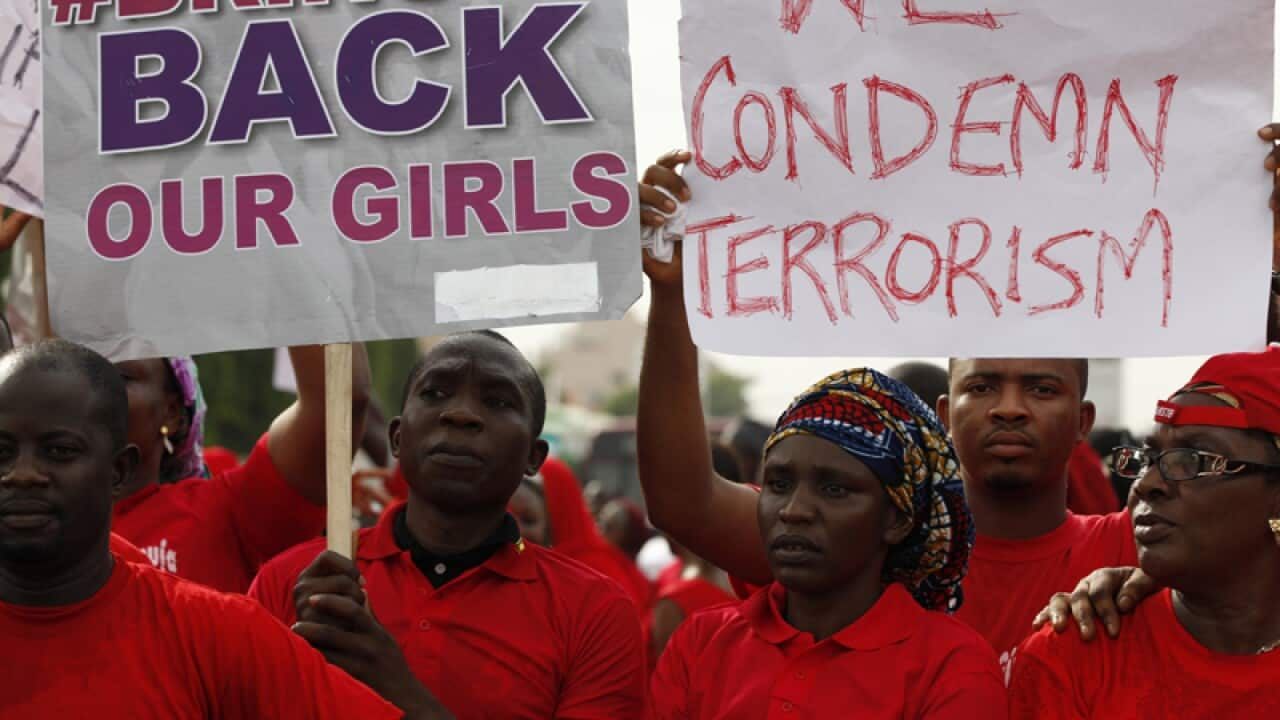The United Nations has imposed sanctions on Boko Haram, blacklisting it as an al-Qaeda-linked terrorist organisation as protesters stepped up demands on Nigeria to secure the release of 200 kidnapped schoolgirls.
The terror designation, immediately welcomed by the United States, subjects Boko Haram to an arms embargo and asset freeze, though it remains unclear what practical impact it will have.
The group, which demands the creation of an Islamic state in mainly Muslim northern Nigeria, has recently escalated its campaign of attacks that have left thousands dead since 2009.
"Boko Haram are now listed on the United Nations' al-Qaeda sanctions list," said Australian Ambassador Gary Quinlan, chair of the al-Qaeda sanctions committee.
"We will work to try and make sure that anyone providing material assistance to Boko Haram, whether funding or arms, will in effect be stopped," he told reporters in New York.
Quinlan said there was "very clear evidence" that Boko Haram had trained extensively with Al-Qaeda in the Islamic Maghreb, particularly on developing bombs.
A significant number of Boko Haram personnel had fought alongside al-Qaeda affiliates in Mali and their leader had made strong statements of solidarity with al-Qaeda franchises, he added.
US Ambassador Samantha Power hailed the sanctions as "an important step" to support Nigeria in defeating "Boko Haram and hold its murderous leadership accountable for atrocities."
Meanwhile, in the Nigerian capital Abuja, about 200 protesters called on President Goodluck Jonathan to do more to recover more than 200 girls kidnapped from a school by Boko Haram on April 14.
The mass abduction has triggered worldwide outrage.
Police prevented the protesters from getting close to the presidential villa and were met by a government delegation that delivered a statement from Jonathan.
In it, the Nigerian leader reiterated the government's commitment to finding the girls but said protests should be directed at "the terrorists who have abducted our innocent daughters."
The statement irked the demonstrators, who demanded to meet with Jonathan.
"Please let Mr. President know that none of the issues raised has been addressed," said march organiser Obi Ezekwesili, a former education minister and World Bank executive.
The United States announced on Wednesday that 80 military personnel had been deployed to Chad to help find the 223 missing girls.
President Barack Obama told Congress that the contingent would stay in Chad until their support "is no longer required."
"These personnel will support the operation of intelligence, surveillance and reconnaissance aircraft for missions over northern Nigeria and the surrounding area," he wrote.
Share

